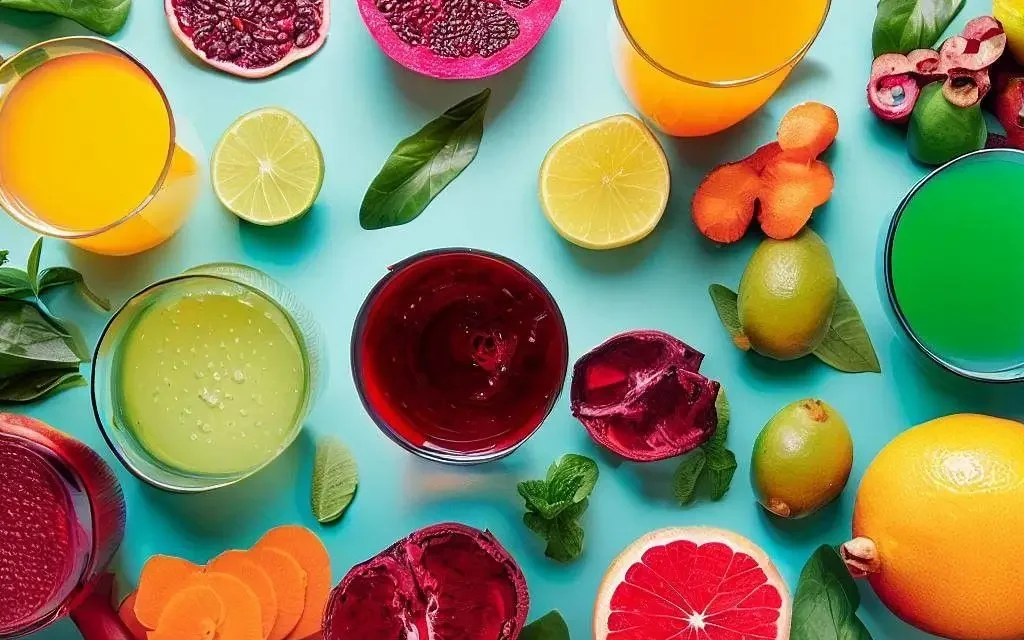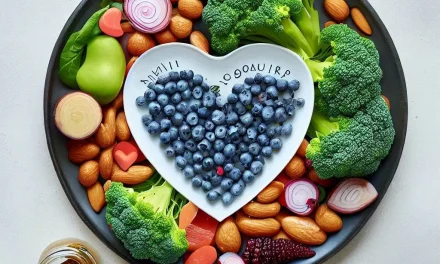Sip your way to better heart health with these delicious and nutritious beverages 🥤🌿
# Improve Heart Health with Essential Drinks for Cardiovascular Benefits
Your heart is the powerhouse that sustains your life, making it crucial to keep it in optimal condition. We’ve previously covered several critical aspects of maintaining a healthy heart, such as proper nutrition, exercise, and stress management. Yet, there’s another essential factor to consider. Can you guess what it is?
The beverages we consume and their quantity significantly affect our overall health. This includes hydration and the contents of these drinks, which can either harm or promote blood and heart health.
In this article, we’ll examine some of the top drinks for cardiovascular well-being. These beverages can help keep your arteries strong, flexible, and resilient, ensuring smooth blood flow throughout your body. As a result, your organs can efficiently cleanse and repair themselves. So, let’s spread the word about heart disease prevention and the power of suitable beverages.
Start integrating these Drinks for Cardiovascular health into your daily diet and feel the difference in your heart health.
13. Coconut water

This comes from inside young green coconuts and is often referred to as nature’s sports drink. That’s because it contains electrolytes like potassium, magnesium, calcium, and sodium, which replenish fluids lost during physical activity. It also has fewer calories than most other beverages, so it’s a great choice if you’re looking for something hydrating without sugar or added ingredients.
But what does coconut water have to do with heart health?
Studies have also shown that coconut water is beneficial for stabilizing blood sugar, protecting against oxidative stress, and controlling high blood pressure, all of which are key to keeping your ticker in top form.
Moreover, research has found that coconut water may be even more effective than water at preventing kidney stones by breaking down and flushing out crystals before they become a problem.
One final note: straight from the coconut is best, as it avoids heat treatment and other processing that happens to packaged coconut water. But if you’re not lucky enough to sip from a fresh coconut shell, check the label and avoid coconut water that contains added sugar.
12. Bitter Gourd Juice (also known as Karela juice)
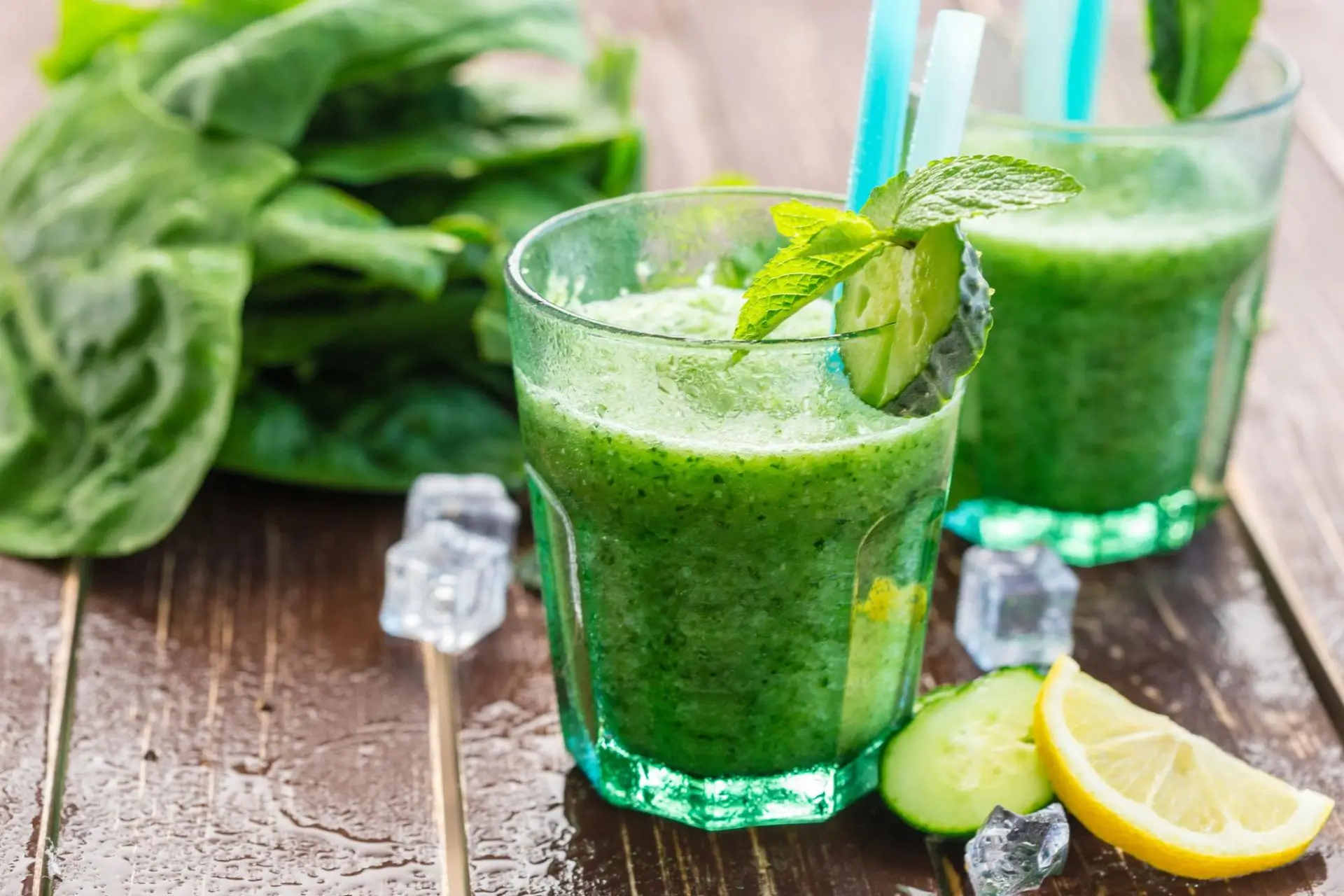
While this one is not common in the Western world, it’s popular in Asia, Africa, and the Caribbean and is used in traditional Chinese medicine and Ayurveda. It’s made by blending the Momordica Charantia plant, also known as bitter gourd or bitter melon. Bitter gourd is particularly high in vitamin C, which is vital for protecting blood vessels from rupture.
In fact, some cardiologists promote vitamin C as one of the most important nutrients for preventing heart disease.
While there isn’t a lot of research on bitter gourd juice, the existing research shows promise. A 30-day animal study found that feeding diabetic rats bitter gourd extract significantly reduced blood glucose. This is important because high blood sugar causes type 2 diabetes and can damage blood vessels in the heart, leading to plaque buildup in the arteries and possibly a heart attack.
The rats that consumed bitter gourd extract also showed signs of repair in the pancreas and liver, while the rats that didn’t receive bitter gourd didn’t show the same signs of repair.
A small human trial shows similar findings where 24 people received either bitter gourd extract or placebo in a randomized, double-blind, placebo-controlled clinical trial, the gold standard of scientific research. At the end of the three-month trial, those who consumed bitter gourd had encouraging results. They showed reduced average blood sugar levels, known as HbA1c (Hemoglobin A1c), as well as weight loss for overweight patients and reduced waist circumference.
So while the research is still in its early stages, bitter gourd juice shows great promise as an excellent drink for heart health.
11. Coffee

This drink is rich in compounds like polyphenols, which are known to have heart-protective effects, including protecting and repairing the lining of the heart and blood vessels.
In fact, according to the European Journal of Clinical Nutrition, coffee is among the top 13 sources of polyphenols. One of the most important polyphenols in coffee is chlorogenic acid, which is famed for its anti-inflammatory and anticarcinogenic properties and is believed to have benefits for preventing type 2 diabetes, obesity, Alzheimer’s and Parkinson’s disease, stroke, and blood vessel damage.
Some people have a problem with the caffeine in coffee, so if that’s you, opt for decaf instead.
Studies show that several coffee’s health benefits are also present in decaf options. Go for black coffee and avoid adding sugar and processed creamers, as they are going to negate the benefits you’re getting.
10. Chlorella
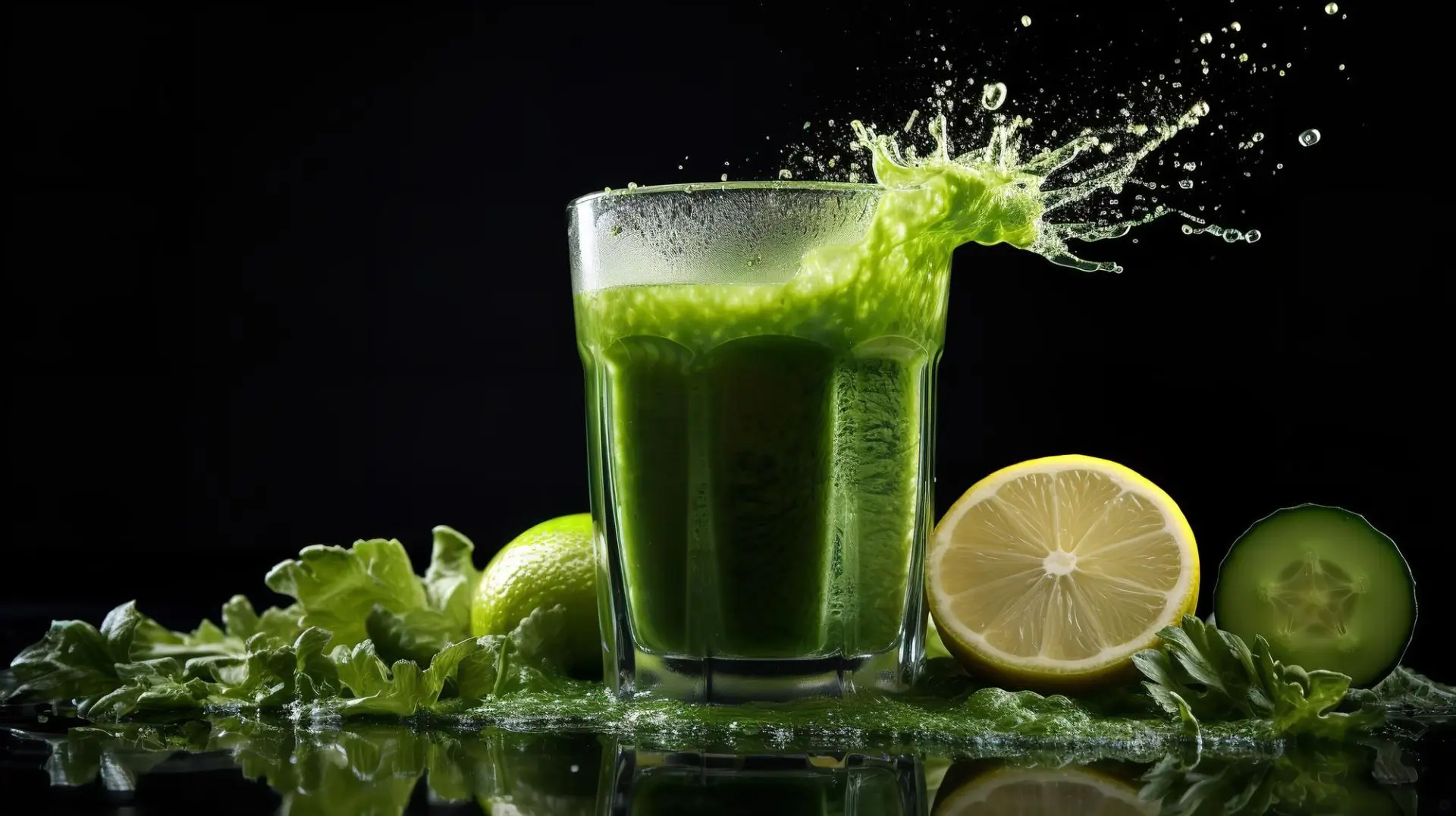
This is a type of single-celled freshwater algae that offers many health benefits. It’s often called nature’s multivitamin, which is no surprise as it’s rich in vitamin C, vitamin B12, iron, calcium, all 9 essential amino acids, beta-carotene, lycopene, lutein, magnesium, zinc, copper, potassium, and folic acid. Furthermore, chlorella is touted for its ability to help the body detoxify heavy metals.
Because of the close link between heavy metals and atherosclerosis, or plaque buildup in the arteries, chlorella is a unique supplement for keeping the arteries healthy.
Studies have also found that chlorella enhances the immune system, prevents the oxidization of cholesterol, promotes healthy blood pressure, and improves blood sugar control, as well as many other benefits for the eyes, liver, gut, and more.
For all of these reasons, chlorella is a heart-friendly drink. It’s a natural supplement, and while it may not taste great, it’s great for you.
Choose a high-quality chlorella powder from a trusted supplier and simply mix a teaspoon into water or a smoothie.
9. Pomegranate Juice
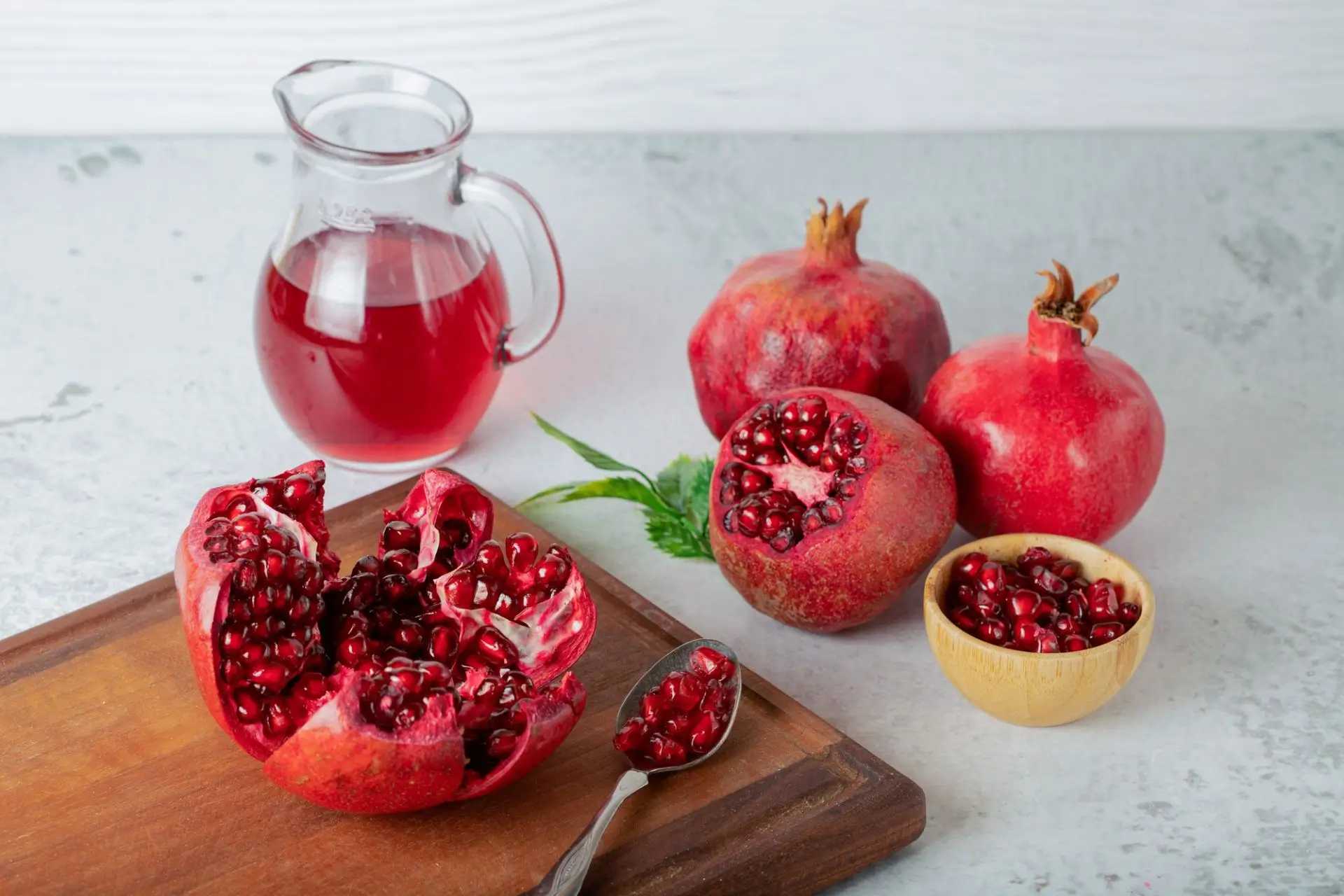
This juice is known for its tart flavor. It also has important health benefits, particularly for the heart.
Studies show that regular consumption of pomegranate juice may reduce risk factors associated with cardiovascular disease. This includes improving artery health and blood sugar control. Research suggests that polyphenols, powerful antioxidants found in pomegranates, are responsible for these beneficial effects by reducing inflammation and improving blood flow to the heart muscle itself.
Overall, drinking Pomegranate juice regularly could be an excellent way to prevent many common cardiovascular problems while enjoying some deliciousness at the same time.
8. Red Wine

This bad boy is well known for its heart and blood health benefits. Moderate red wine consumption has been found to lessen the risk of cardiovascular disease. It contains polyphenols and antioxidants that support healthy cholesterol, which has a direct impact on heart and arterial health.
Red wine polyphenols have been shown to improve fasting blood sugar levels. White wine also contains healthy polyphenols, but red wine contains far more, which is why red wine is frequently promoted as the healthier option.
It is crucial to remember that excessive alcohol can result in various problems with the liver and kidneys. So limit yourself to one or two drinks every day and choose a quality organic wine.
7. Beetroot juice
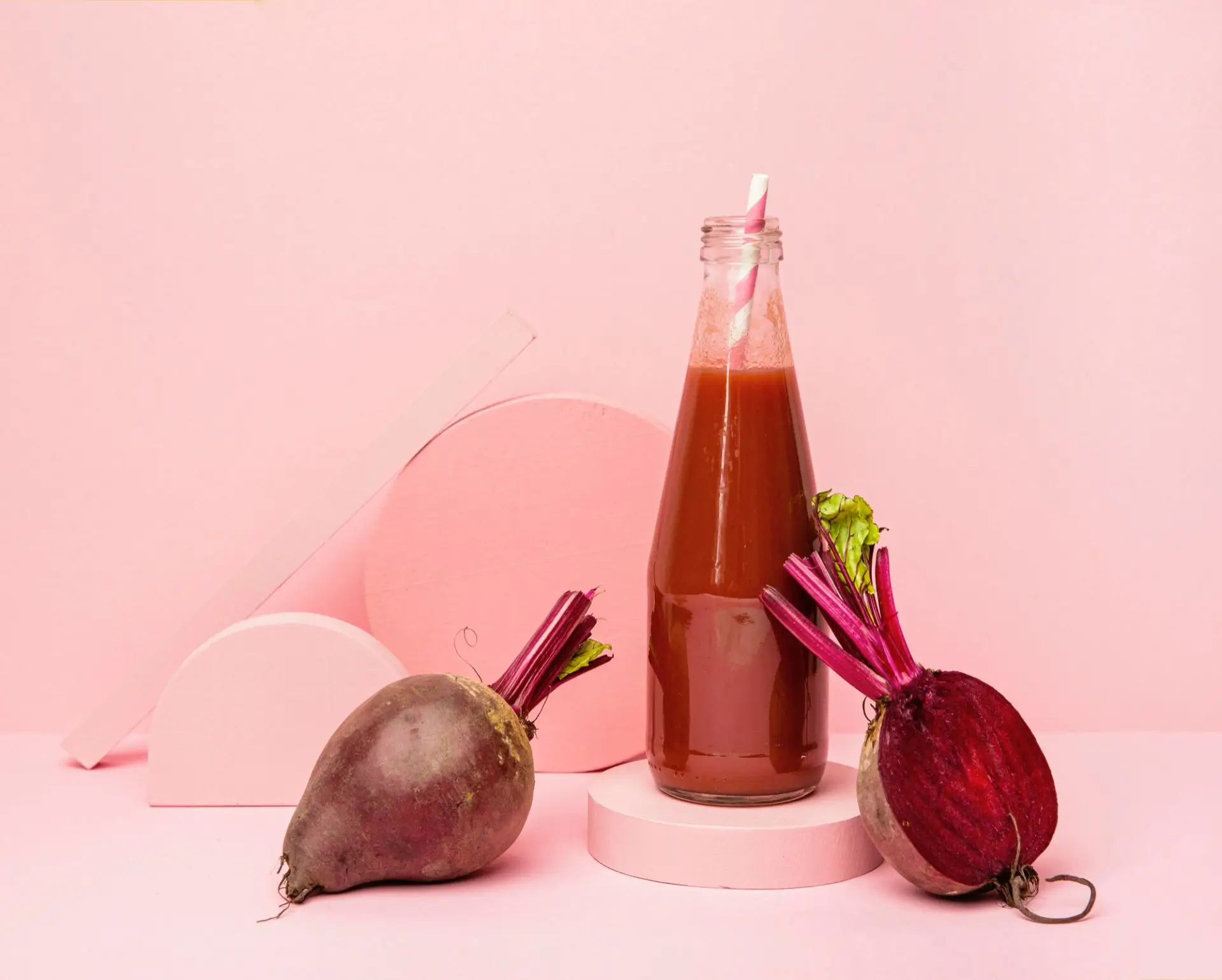
Nothing beats the deep red color of fresh beetroot juice. I am right? 🙂
Not only is it aesthetically pleasing, but studies show that drinking beetroot juice can do wonders for your heart health.
One study found that consuming 250 grams of beetroot juice daily for four weeks was associated with reduced systolic and diastolic blood pressure levels among people with hypertension. Nitrates in beetroot become nitric oxide once consumed, which causes arteries to relax and become more flexible, helping to stabilize blood pressure and prevent artery damage.
Another study found that drinking beetroot juice improved blood flow to the brain and that it may help prevent dementia and other cognitive declines. Furthermore, the potassium in beetroot helps to protect nerves and aid healthy muscle function, and it has also been shown to support the liver and promote healthy cholesterol, making beetroot juice an excellent option to keep the whole body functioning optimally with strong muscles and a good supply of clean blood throughout.
6. Kombucha
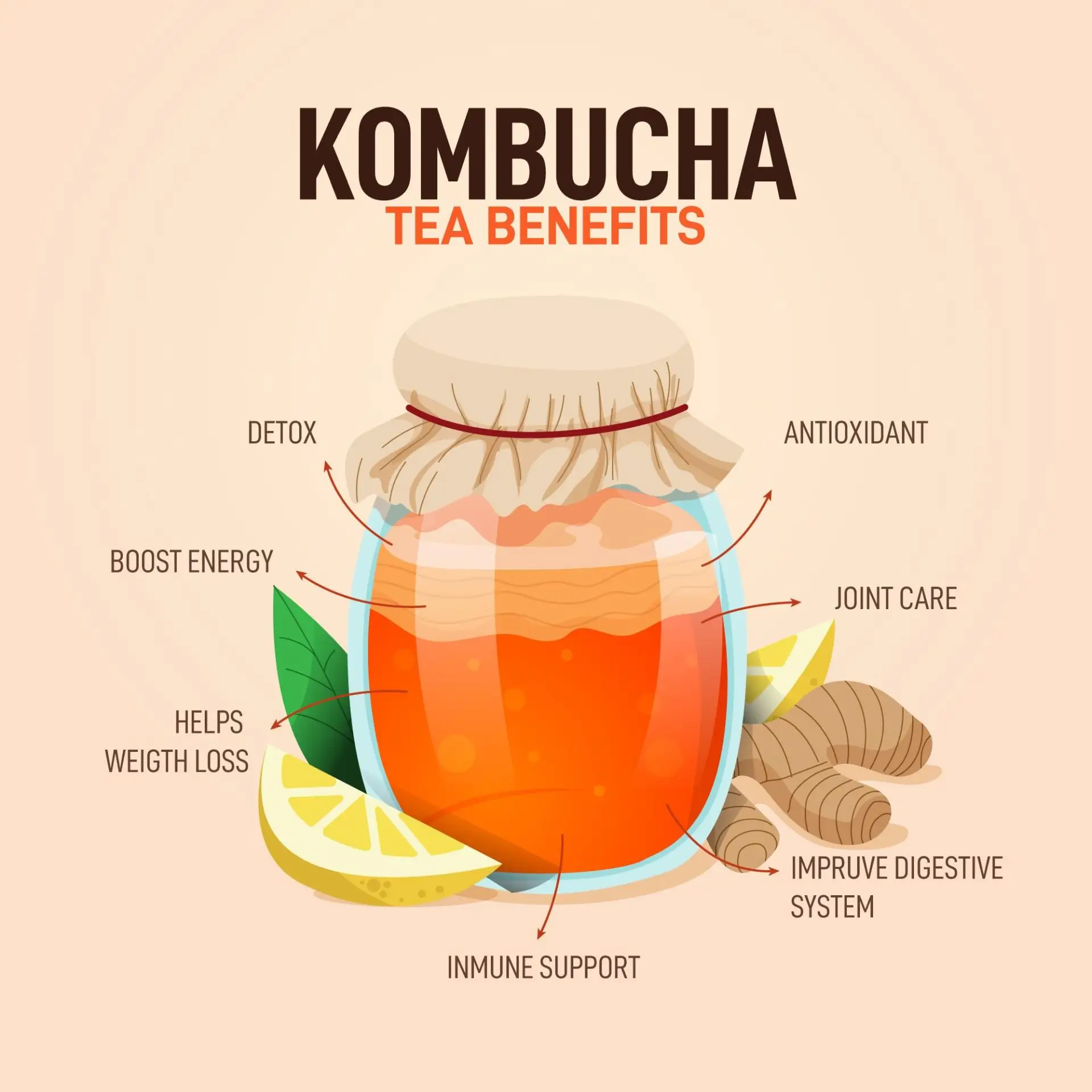
This fermented tea has become very popular in recent years due to its wide-ranging health benefits. It has been linked to improving digestion, energy, and overall health.
Studies suggest that regular consumption of Kombucha may reduce risk factors for cardiovascular disease, particularly inflammation. This tea contains probiotics, which aid gut health, and everything flows from there: lower inflammation, better blood glucose control, improved blood lipids, healthier cholesterol particles, improved liver function—you name it, Kombucha has an impact.
You can make Kombucha at home or buy it from a trusted health store; just be sure to check for added sugar.
5. Lemon water

First of all, lemons are a great source of vitamin C, which plays an important role in heart health by reducing inflammation and protecting against oxidative stress. Additionally, lemons contain flavonoids, plant compounds with strong antioxidant properties, which can reduce risk factors associated with cardiovascular disease, such as damaged cholesterol and blood pressure problems. Furthermore, lemon water can change the way you digest food.
According to research published in the European Journal of Nutrition, drinking lemon water while eating was associated with 30% lower blood glucose levels as compared to drinking plain water. Lemon decreases the glycemic response by raising the PH of food and slowing digestion, meaning that glucose enters the bloodstream more gradually and prevents harmful blood sugar spikes, which can cause damage to blood vessels and contribute to heart disease.
4. Ginger Tea
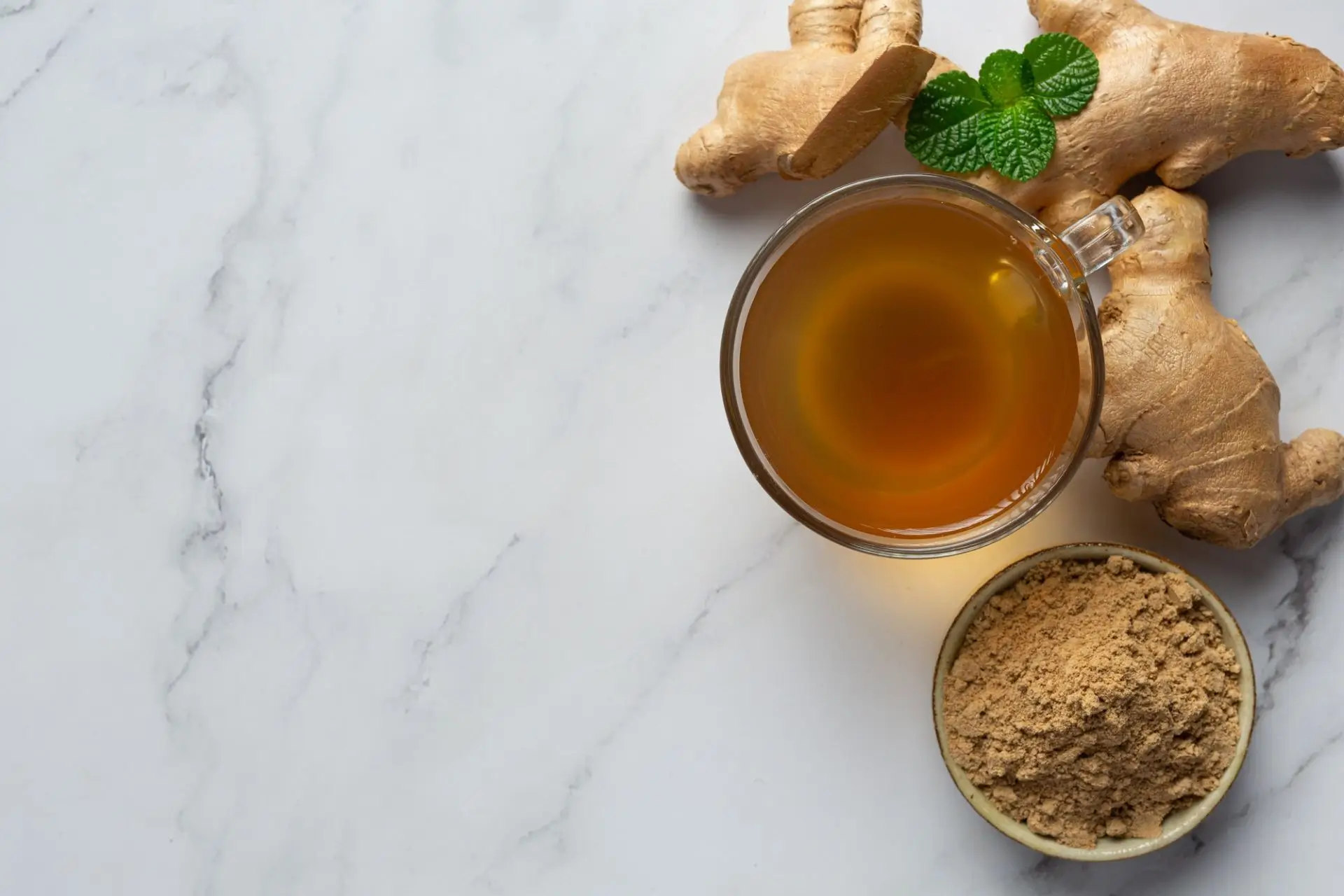
This tea is another centuries-old drink that has long been used for health benefits. Ginger is known to have anti-inflammatory, antioxidant, and digestive benefits. Its cardioprotective effects include improving the heart’s ability to beat efficiently, also known as cardiotonic improvement, alleviating high blood pressure, improving blood lipid profiles, and countering abnormal blood clotting.
In a twelve-week study, people with type 2 diabetes consumed 2 grams of ginger powder daily. At the end of the study, their HbA1c levels had been reduced by an average of 10%, while a whopping 28% had reduced oxidative stress markers.
Ginger tea is also an excellent drink for aiding weight loss, improving digestive problems, boosting immunity, and protecting against bacterial infections.
To make ginger tea, grate fresh ginger root and pour boiling water. You may also like to add a squeeze of lemon and a dash of our next ingredient.
3. Apple cider vinegar
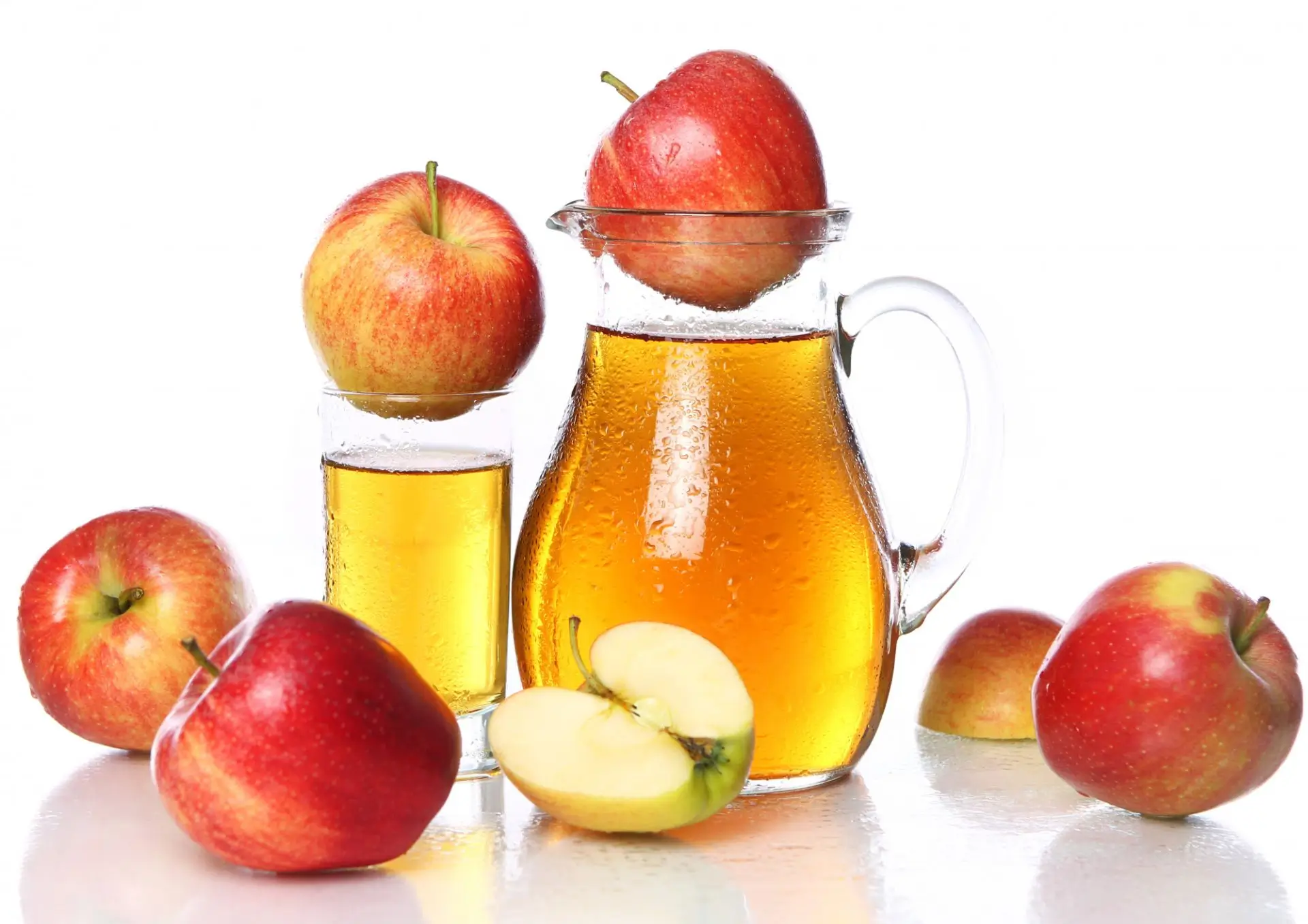
This one has been popularized as a natural remedy for many ailments, including heart health. You don’t want to drink a lot, but a teaspoon in your ginger tea or in a glass of water can make a big difference.
It’s a great way to start the day by cleansing the digestive system. It’s also a great thing to add to salad dressings and sauces.
Apple cider vinegar contains acetic acids, which reduce enzymes that contribute to high blood pressure. Additionally, several studies suggest that apple cider vinegar can improve blood sugar regulation and insulin sensitivity in individuals with type 2 diabetes, in turn reducing the risk of heart disease, stroke, and other complications associated with high glucose.
TIP! ☝️
Apple cider vinegar can negatively affect tooth enamel, so it’s advised to drink it through a straw, rinse with water afterwards, and avoid brushing your teeth immediately after drinking it. That might sound like a lot of work, but it’s worth it for all the potent health benefits that apple cider vinegar provides.
2. Tea

Tea is rich in healthy plant compounds like catechins and polyphenols, known for their anti-inflammatory and health-promoting effects. These substances support heart health by preventing oxidization, reducing blood glucose, dilating blood vessels, and reducing “stickiness” in blood platelets.
According to a 2012 study, data suggests that black and green tea may reduce the risk of coronary heart disease and stroke by between 10 and 20%.
Time and time again, the research highlights green tea as the standout for health benefits. However, many types of tea bring unique benefits, including green, black, oolong, hibiscus, and chamomile. Hibiscus tea is an interesting one that has particular advantages for blood health.
A clinical study including 390 participants looked at the impact of hibiscus tea on blood pressure and found that drinking this type of tea reduced systolic and diastolic blood pressure by up to 95%. That’s because of hibiscus tea’s unique profile of polyphenols and anthocyanins, which give it its dark color and are powerful at decreasing inflammation, free radicals, and blood lipids.
So sit back and enjoy a cupboard. Fill your cupboard with various teas, and know every cup does your heart well.
1. Water

Drinking plenty of water is essential for a healthy heart as it helps keep your circulatory system running efficiently, reducing the risk of cardiovascular disease. Water also helps maintain a healthy balance of electrolytes and minerals in your body, which are necessary to function the heart muscles properly.
Additionally, drinking enough water can help reduce high blood pressure, an essential factor in preventing stroke and other severe cardiac conditions.
Water should be the default option for keeping your body running smoothly. Opt for high-quality water if you can, avoid chlorinated water, and drink pure mineral water if possible, as studies show that mineral water is perfect for detoxifying the blood and reducing blood pressure.
We’ve highlighted several Drinks for Cardiovascular health to help you make informed choices about your hydration habits.

Resources:
https://www.healthline.com/health/what-are-flavonoids-everything-you-need-to-know
Preetha, P. P., Devi, V. G., & Rajamohan, T. (2012). _Mature coconut water exhibits antidiabetic and antithrombotic potential via L-arginine-nitric oxide pathway in alloxan-induced diabetic rats_. Journal of Medicinal Food, 15(9), 769-775.
Sandhya, V. G., & Rajamohan, T. (2006). _Beneficial effects of coconut water feeding on lipid metabolism in cholesterol-fed rats_. Journal of Medicinal Food, 9(3), 400-407. https://www.liebertpub.com/doi/10.1089/jmf.2006.9.400
Anurag, P., & Rajamohan, T. (2010). _Cardioprotective effect of tender coconut water in experimental myocardial infarction_. Plant Foods for Human Nutrition, 65(3), 260-266.
Alleyne, T., Roache, S., Thomas, C., & Shirley, A. (2005). _The control of hypertension by use of coconut water and mauby: two tropical food drinks_. West Indian Medical Journal, 54(1), 3-8. https://pubmed.ncbi.nlm.nih.gov/15892382/
Preetha, P. P., Girija Devi, V., & Rajamohan, T. (2015). _Hypoglycemic and antioxidant potential of coconut water in experimental diabetes_. Food & Function, 6(7).
Keep in mind that more recent studies might be available, and it’s essential to consult with a healthcare professional before making any changes to your diet based on these studies.
These studies suggest that coconut water may have potential benefits in stabilizing blood sugar, protecting against oxidative stress, and controlling high blood pressure. However, further research is needed to validate these findings and to determine the optimal consumption levels and mechanisms involved.

